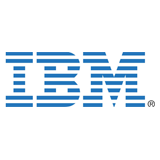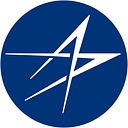Companies that use Ansible
Ansible is an IT automation tool. It can configure systems, deploy software, and orchestrate more advanced IT tasks such as continuous deployments or zero downtime rolling updates. Ansible’s goals are foremost those of simplicity and maximum ease of use.
82,710
companies
List of companies using Ansible
curl --request POST \
--url "https://api.theirstack.com/v1/companies/search" \
--header "Accept: application/json" \
--header "Content-Type: application/json" \
--header "Authorization: Bearer <api_key>" \
-d "{
\"company_technology_slug_or\": [
\"ansible\"
]
}"Technology
is any of
Ansible
| Company | Country | Industry | Employees | Revenue | Technologies |
|---|---|---|---|---|---|
 France | IT Services and IT Consulting | 420k | $24B | Ansible | |
 United States | Defense and Space Manufacturing | 85k | $35B | Ansible | |
 United States | IT Services and IT Consulting | 349k | $61B | Ansible | |
 United States | Defense and Space Manufacturing | 36k | $14B | Ansible | |
 France | IT Services and IT Consulting | 80k | $19B | Ansible | |
 Canada | IT Services and IT Consulting | 89k | $9.5B | Ansible | |
 United States | Defense and Space Manufacturing | 111k | $66B | Ansible | |
 United Kingdom | Financial Services | 194k | Ansible | ||
 United States | IT Services and IT Consulting | 13k | $7B | Ansible | |
 France | IT Services and IT Consulting | 97k | $11B | Ansible |
We have data on 82,710 companies and users that use Ansible. Our Ansible users and customers list is available for download and comes enriched with vital company specifics, including industry classification, organizational size, geographical location, funding rounds, and revenue figures, among others.
Technology Usage Statistics and Market Share
How to target Ansible users
- How to customize this list?
You can customize this data to your needs by filtering for geography, industry, company size, revenue, technology usage, job postions and more. You can download the data in Excel or CSV format.
- How to be alerted when companies adopt this technology?
You can get alerts for this data. You can get started by selecting the technology you are interested in and then you will receive alerts in your inbox when there are new companies using that technology.
- How to import this data to my CRM?
You can export his data to an Excel file, which can be imported into your CRM. You can also export the data to an API.
Frequently asked questions









